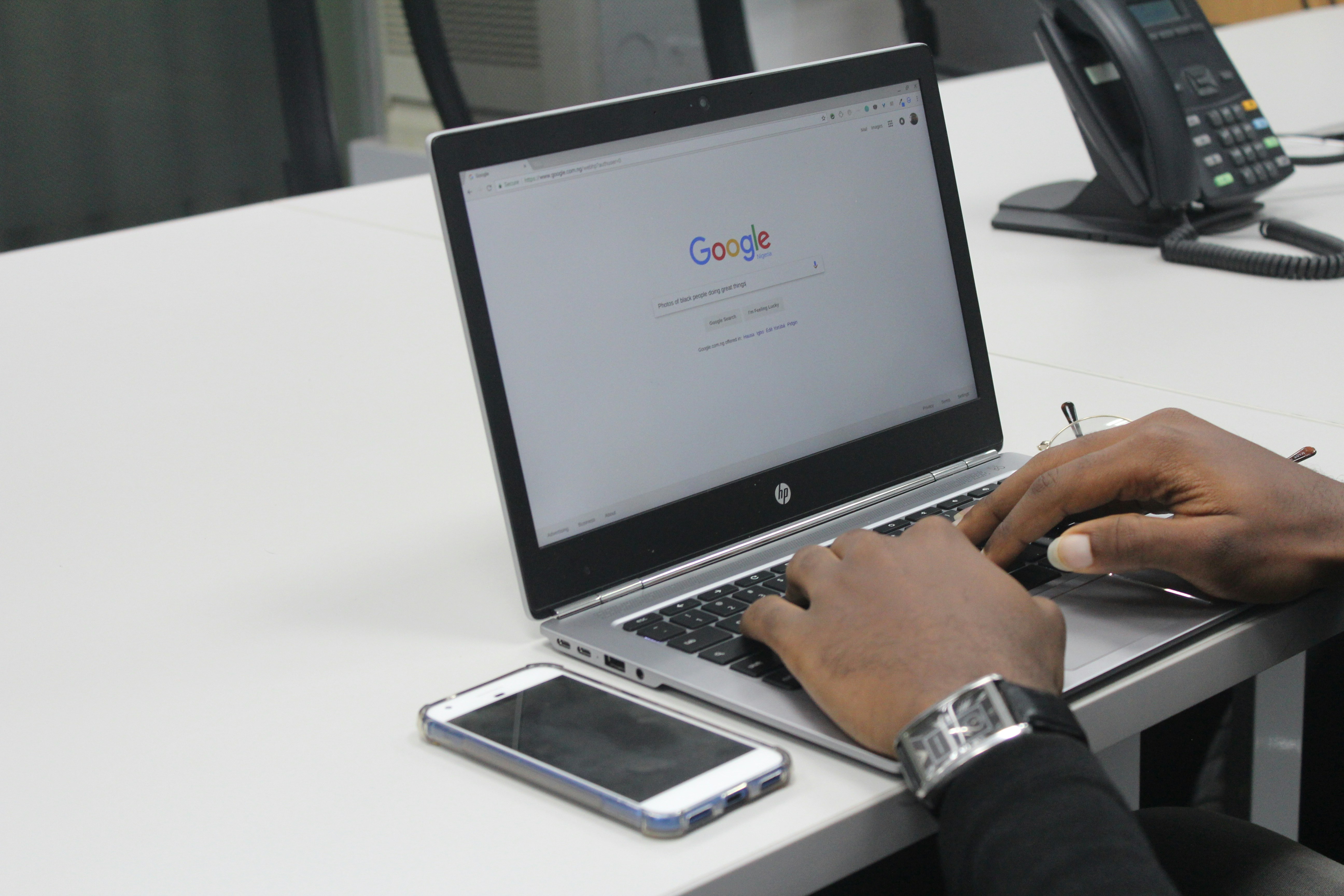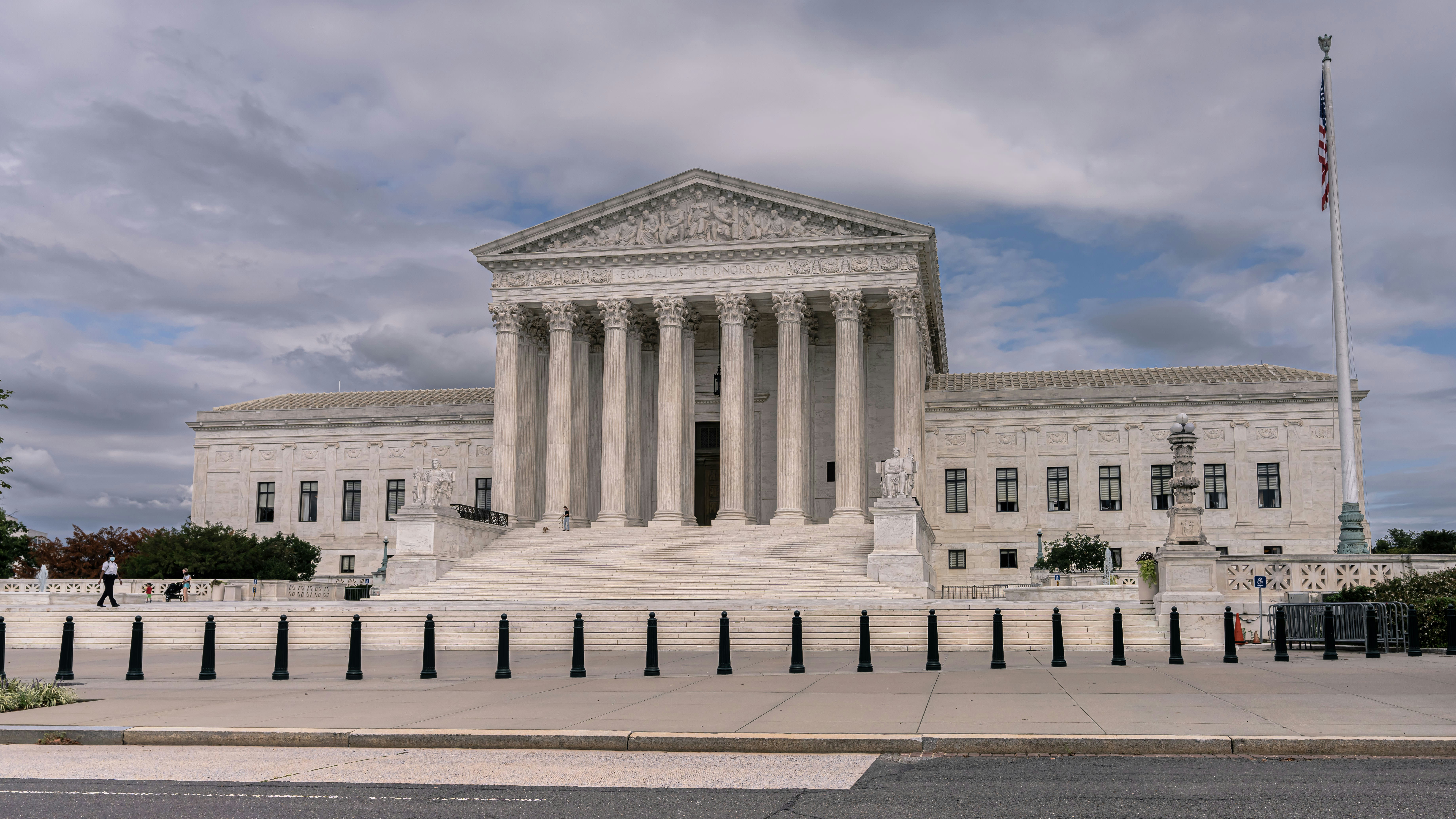
Hola, tech aficionados! 🚀 Welcome to the era of tech Titans clashing with the pillars of the legal world, where the stakes couldn't be any higher. Today, we're unfolding the theater curtains on the biggest tech trial of the decade - US v. Google. 🏛️ 🎇

Ahí está, folks! The stage is all set for a grapple of the century, packed with high drama, anticipation, and a struggle for digital dominance. 🎭 💼 But let me tell you this, my friends, this legal limbo is not just about a tech giant coming under the scrutiny of Uncle Sam. No! This is about you, me and the future of the internet. 🌐 💻
This is about the invisible powers that decide what we search, see and say. It's about deciphering hidden patterns, the power of default settings, and an ongoing marathon to secure the top spot in the cutthroat search engine market. 💼🔍🥇
In the next minutes, we'll be diving deep into the crux of this landmark litigation, examining arguments made by both the knights of antitrust (the Justice Department) and the king of search engines (Google). Get ready to plunge into the world of coercive deals, market monopoly, power play and deep data. Buckle up, folks! This is going to be one bumpy, intriguing and ridiculous ride! 🎢 🚀Google, the tech giant under the legal microscope, has its own narrative—one that argues in favor of their stance in the market. Their defense, led by the steadfast John Schmidtlein, hinges on the argument that their default settings and various deals not only maintain but actually stimulate competition.

Perhaps it can be likened to a competitive athlete who claims they're only showcasing their best abilities, honing their competitive edge to outdo the rest. Their stance generally appears to translate into something akin to, 'We're simply navigating the game better than anyone else, folks.'
But here's where it gets more nuanced. The question on everyone's mind is: Is it really a fair game? Or has Google managed to assume multiple roles on the playing field? Is Google the powerful referee dictating the rules, the strategic player holding the dominant position, and the ingenious coach sketching out the game plan all at once? 🎲🏆
On the surface, it seems like a well-rehearsed justification of their market strategies. But, my dear readers, as we wade deeper into these murky waters, you will discover that there's more to it than meets the eye. So, keep your goggles on, because we're about to venture into the deep end!The US v. Google trial symbolizes a defining moment, a proper shake-up of the tech realm. Its outcome could dramatically alter the landscape of the internet and the competitive nature of search engines. Picture this: we are standing at a crucial juncture, a fork in the digital road. One pathway leads us toward an open market bustling with competition, blooming innovations, and a more democratic cyberspace. 🚀🔮

The Clashing Visions
The other trail, however, offers a starkly contrasting future—a cyber world ruled by few tech titans, the likes of Google. In such a reality, digital dominance would still be concentrated in the hands of the few, who dictate the how, what and why of our digital experiences.
This clashing vision of the future is precisely why this trial holds such monumental significance. It presents two divergent paradigms—one fostering vigorous competition and the other capitulating to continued dominance. Needless to say, the stakes are high for both Google and for us, the global audience who are players in this sphere. 🌐
Ripple Effects on the Tech Industry
This trial not only challenges Google's towering stature but also the ethos of the entire tech industry, affecting how digital markets operate globally. Undeniably, the ripple effects of this trial will be far-reaching, shaping the very dynamics of technological competition, online advertising, default settings, and consumer behavior, forever changing how we interact, consume, and exist in the digital world.
In essence, the courtroom battle we are witnessing today embodies a struggle far grander in significance than we might initially perceive. It's not just a legal tug of war between a tech titan and a governmental giant. It's an underpinning tension around control, power, competition, and the very nature of our digital reality. The paths this trial can lead us down are fundamentally different. We, the spectators, can only watch, analyze and speculate as we dive deeper into these tumultuous currents.
The Justice Department's Arguments
"People have a natural tendency to stick with defaults, even when other options are available and better for them."
Kenneth Dintzer, the attorney representing the Justice Department, passionately argued, "This case is about the future of the internet and whether Google Search will ever face meaningful competition." It's a statement that perfectly encapsulates the crux of this trial that began on Sep 15, 2023, drawing attention from all corners of the globe.
The Justice Department's arguments are centered on the power of Google’s default settings, which they allege have created a virtual stronghold that limits competition. Seeing Google not just as a platform but an omnipresent gatekeeper, they argue that Google's search dominance extends far beyond just user preferences. The line of reason here is that defaults are powerful, often defining the framework within which we operate.
As everyday users, we rarely shift from these defaults, largely due to ease and convenience, proving a point made by Caltech behavioral economics professor, Antonio Rangel. He once said, "People have a natural tendency to stick with defaults, even when other options are available and better for them." This, according to the Justice Department, is an unfair manipulation of consumer choices and an aggressive plank that maintains Google's market monopoly.
In essence, the argument is simple: Google has been disincentivizing competition and manipulating consumer behaviors to secure its position as the titan of the search engines. It's as if, through the power of its default settings and the deals it has made with other players in the tech industry, Google has managed to dictate the rules of engagement in the online search domain.
But that’s only one side of this complicated coin, and as rightly put by Adi Robertson, a senior tech and policy editor focused on online platforms and free expression, "There are two narratives; one of a tech giant bending regulations and the other of an able player in a competitive market." As we dissect this further, you will see how Google has its own unique defense. So brace yourselves, my friends, for the plot is about to thicken!
Frequently Asked Questions
Q: What is the US v. Google trial about?
A: The US v. Google trial is a legal case that revolves around allegations of antitrust violations by Google. The trial seeks to determine whether Google has engaged in anti-competitive practices and whether it has unfairly maintained a dominant position in the search engine market.
Q: Why is the trial significant?
A: The trial holds significant importance as its outcome could have far-reaching implications for the tech industry and the future of digital markets. It could potentially reshape competition dynamics, advertising practices, default settings, and consumer behavior in the digital world.
Q: What are the main arguments made by the Justice Department?
A: The Justice Department argues that Google's default settings and various deals have created a virtual stronghold, limiting competition. They claim that Google's dominance extends beyond user preferences and that defaults have a powerful influence on consumer choices, unfairly maintaining Google's market monopoly.
Q: What is Google's defense in the trial?
A: Google's defense centers around the argument that their default settings and deals stimulate competition rather than stifling it. They claim that they are simply navigating the competitive landscape better than others and that their market strategies are justified.
Q: How could the trial impact the tech industry?
A: The trial's outcome could impact the entire tech industry, influencing how digital markets operate globally. It may lead to changes in competition dynamics, online advertising practices, default settings, and consumer behavior, ultimately shaping the way we interact and exist in the digital world.
Q: What are the contrasting visions presented by the trial?
A: The trial presents two contrasting visions of the future. One envisions a competitive market with innovation and a more democratic cyberspace, while the other suggests continued dominance by a few tech giants, including Google, who dictate the rules of our digital experiences.
Q: What are the potential consequences of the trial?
A: The trial's consequences could be significant, impacting the competitive nature of search engines, technological innovation, and the control exerted by tech giants. It could lead to changes in how we interact, consume, and exist in the digital realm.

